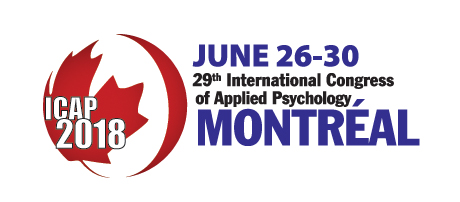2018 Pre-Congress Workshop 14: Increasing Supportive Caregiver Involvement and Decreasing Obstructive Behaviours: Lessons Learned from Emotion-Focused Family Therapy
Jun 24, 2018 09:00AM
Palais des congrès de Montréal

| Presented by: | Adele Lafrance |
| Sponsored by: | Family Psychology |
| Continuing Education Credits: | 6 |
| Notes: |
Background in family therapy is not required. |
| Cost: |
CPA/IAAP Members: $295.00 + GST + QST Non-Members: $350.00 + GST + QST
Click here to download the country list |
| Duration: | Full Day (9:00 – 16:30) |
| Target Audience: | Researchers, clinicians and graduate students |
| Skill/Difficulty Level: | Introductory level |
|
Workshop Description: Part of the Emotion-Focused Therapy “family”, and influenced by interpersonal neurobiology, the essence of Emotion-Focused Family Therapy (EFFT) is to support caregivers to increase their role in their loved one’s recovery from mental health issues. The clinician’s role is to support parents to increase their involvement in:
One of the key strengths of the approach lies in the fact that clinicians can support caregivers to take on these roles regardless of their loved one’s age or involvement in formal treatment themselves, creating hope for those families when their child refuses service. Throughout treatment, the clinician also seeks to transform “emotion blocks” in caregivers that may lead to therapy-interfering attitudes or behaviours such as denial, criticism of accommodating and enabling behaviours. Recent EFFT research has revealed that these caregivers are not unable or unmotivated to act as positive agents of change. Rather, they are paralyzed by “emotion blocks” such as fear and self-blame. As such, the treating clinician employs specific EFFT techniques to attend to and process these emotion blocks in order to harness the healing power of caregivers. This workshop will begin with an overview of the EFFT model followed by outcome and process research. EFFT techniques that can be integrated into existing treatment models will be presented using video, demonstrations and an experiential activity. |
|
|
Learning Outcomes:
|
|
